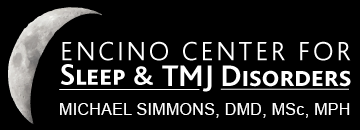
Getting a good night’s sleep shouldn’t feel like an impossible dream, yet millions of people struggle with sleep issues every night. Many adults experience chronic insomnia, while countless others deal with occasional sleep difficulties. As sleep problems continue to affect public health, many turn to medications and supplements for relief. But which options are most effective, and what are the trade-offs?
Prescription Sleep Medications
Benzodiazepines
Benzodiazepines like Valium and Xanax have long been used to treat sleep disorders. These medications work by enhancing the effects of GABA, a neurotransmitter that reduces brain activity. While highly effective for short-term use, with success rates of 70-80% in clinical trials, they come with significant considerations.
The good news? They work quickly and effectively. The downside? Side effects can include morning grogginess, decreased coordination, and memory problems. More concerning is their potential for dependency – most doctors recommend using them for no more than two to four weeks.
Non-benzodiazepines
Enter the “Z-drugs” like Ambien and Lunesta. These newer medications target similar brain pathways more selectively, theoretically offering fewer side effects. Studies show they’re effective for 60-70% of users, with a lower risk of dependency compared to traditional benzodiazepines.
However, they’re not without risks. Users should be aware of potential side effects like:
- Sleep-walking or sleep-eating
- Next-day drowsiness
- Memory issues
- Dizziness
Other Prescription Options
Some antidepressants, particularly those with sedating properties, can improve sleep quality. Newer medications like orexin receptor antagonists work by blocking wake-promoting signals in the brain. These alternatives might be particularly useful for people with both sleep and mood disorders.
Over-the-Counter Solutions
Antihistamines
Many people reach for antihistamines like Benadryl (diphenhydramine) or Unisom (doxylamine) as their first sleep aid. These medications can be effective for occasional use, but tolerance develops quickly – usually within a few days.
Long-term use isn’t recommended because:
- Effectiveness decreases rapidly
- May contribute to daytime drowsiness
- Can impact cognitive function in older adults
- Might increase risk of dementia with prolonged use
Natural Supplements
Melatonin
Melatonin stands out as one of the most studied sleep supplements. This natural hormone helps regulate our sleep-wake cycle, and supplementation can be particularly effective for:
- Jet lag recovery (success rates up to 90%)
- Shift work adjustment
- Delayed sleep phase syndrome
Typical dosages range from 0.5-5mg, with research suggesting “less is more” – smaller doses often work better than larger ones. Side effects are generally mild but can include headaches and vivid dreams.
Valerian Root
This traditional herb has shown promise in improving sleep quality, though results are mixed. Studies suggest it may help reduce the time it takes to fall asleep by 15 to 20 minutes. Side effects are rare, making it a safe option for many people.
Other Natural Alternatives
Chamomile, passionflower, and lavender have all shown modest benefits for sleep. While their effects might be subtle, they’re generally very safe and can be part of a holistic sleep strategy.
Special Considerations
Age matters significantly when choosing sleep aids. Older adults should generally avoid antihistamines and be cautious with benzodiazepines. Pregnant women should consult healthcare providers, as many sleep medications aren’t well-studied in pregnancy.
Medical conditions and other medications can interact with sleep aids. Always check with a healthcare provider, particularly if you:
- Take other medications
- Have liver or kidney problems
- Suffer from breathing disorders
- Have a history of substance abuse
Building a Sustainable Sleep Strategy
The most effective approach to better sleep combines appropriate sleep aids with good sleep hygiene:
- Maintain consistent sleep schedules
- Create a relaxing bedtime routine
- Optimize your sleep environment
- Limit screen time before bed
- Exercise regularly (but not too close to bedtime)
When to Seek Help
While occasional sleep problems are normal, consult a healthcare provider if:
- Sleep issues persist for more than a month
- Sleep problems significantly impact daily function
- You experience unusual sleep behaviors
- You need sleep medication more than two to three times per week
Dream Better, Live Better: Your Sleep Solutions in Encino
Don’t let another restless night steal your joy and vitality. At the Encino Center for Sleep & TMJ Disorders, we understand that every yawn, every morning headache, and every sleepless night takes a toll on your life and relationships. Our dedicated team of sleep specialists doesn’t just treat symptoms – we transform lives by addressing the root cause of your sleep and TMJ issues. Imagine waking up feeling truly refreshed, ready to embrace each day with energy and enthusiasm.
Whether you’re struggling with sleep apnea, TMJ pain, or other sleep-related challenges, we’re here to guide you toward the peaceful rest you deserve. Take the first step toward better sleep and a brighter tomorrow – call us at (818) 300-0070 to schedule your consultation. Your journey to restful nights and pain-free days begins here in Encino, where expert care meets compassionate understanding.
